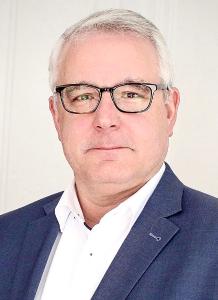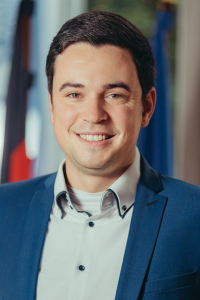Event
Details
The early Parliamentary Elections in October 2022 are the third early ballot for Bulgarians since 2021 - an unprece- dented event in the history of the south-eastern European EU and NATO member. The new election had become necessary because Prime Minister Kiril Petkov's social-liberal coalition government broke up in a dispute over budget- ary issues and relations with neighbouring North Macedonia. The head of government lost a subsequent vote of no confidence, and the formation of a new government failed in three attempts. Finally, President Rumen Radev dissolved parliament and appointed a cabinet of experts as a transitional government. This cabinet is to lead the country through the crisis-ridden times, also for Bulgaria, until early elections are held and a new government is formed. As a former member of the Warsaw Pact and current member of the Western alliances, the country moves in a grey zone between the two poles in individual policy areas (e.g. energy policy). Bulgaria's political landscape therefore also contains pro- European and declared pro-Russian parties that aim at closer ties with the respective side. Current polls give little reason to hope that the political stalemate of recent months will be resolved. The pro-European party GERB of former Prime Minister Boyko Borisov (a member of the EPP at the European level) performs best in the current surveys, but is still largely isolated politically, as other parties blame it for corruption in the country and rule out cooperation. The "We Continue the Change" (PP) platform of former Prime Minister Petkov, newly founded before the last election, could become the second strongest force, but not find enough allies for a majority.
Who are the winners, who are the losers after the parliamentary elections in 2022? Can the political stalemate in Bul- garia be ended after the fourth round of elections in two years or are new elections conceivable after further attempts to form a government? How does the current situation affect confidence in the state's policies and institutions? What is the role of President Rumen Radev in this historic situation?
The event "The Morning After - Bulgaria has voted" will take place on Tuesday, 04 October 2022 from 09:30-10:15 CET via Zoom. We are looking forward to discussing the above-mentioned topics with our colleague Norbert Beckmann-Dierkes, Director of the KAS Office in Bulgaria. After the conversation between Mr Beckmann-Dierkes and Dr. Hardy Ostry, Director of the European Office of the Konrad-Adenauer-Stiftung, the audience will have the opportunity to contribute their questions to the discussion. The event will be held in German and will also be simultaneously translated into English.
For registration, please use this LINK.
We look forward to your participation!
Here you will find the program for download: Programme 22-10-04 The Morning After (Bulgaria).pdf




